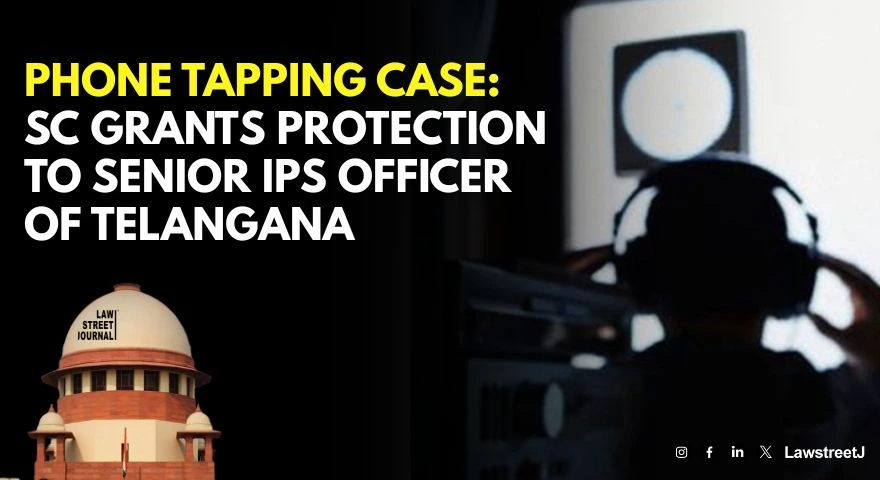NEW DELHI: The Supreme Court on Thursday granted interim protection from coercive action to former chief of the Special Intelligence Bureau in Telangana, T Prabhakar Rao, an accused in the phone-tapping case during the previous BRS regime.
A bench of Justices B V Nagarathna and Satish Chandra Sharma directed Rao to appear before the investigation officer.
The court also directed the authorities to make available his passport for travel to India to him as he is suspected to be hiding in the US.
Rao was alleged to be a key accused in the phone-tapping case during the BRS regime, in which at least 1200 people were under constant surveillance by misutilising around 50 members of the Special Operations Team (SOT).
The senior IPS officer faced a Red Corner Notice and his passport was revoked.
On his plea argued by senior advocate Dama Sashadri Naidu, the court directed Rao to give an undertaking that he would return to India within three days after the receipt of his passport.
Solicitor General Tushar Mehta and senior advocate Sidharth Luthra, appearing for the Telangana government vehemently opposed the plea filed by Rao seeking anticipatory bail.
The court scheduled the matter for hearing on August 5.
It sought a status report of the investigation by the next date, while protecting the petitioner from any coercive action till then.
The court kept the issue regarding maintainability of the plea for anticipatory bail open to be considered at a later stage.
Rao filed the plea in the court challenging an order of the Telangana High Court, which dismissed his plea seeking anticipatory bail.
On May 22, a Hyderabad court issued a proclamation order against Rao in the phone-tapping case.
The order stated that Rao may be declared a "proclaimed offender" if he does not appear before the court by June 20.
A suspended DSP of SIB Dugyala Pranith Rao was among four police officials, arrested by Hyderabad Police since March 2024, for allegedly erasing the intelligence information from various electronic gadgets as well as for alleged phone-tapping during the previous BRS regime. They were subsequently granted bail.
The accused were alleged to be a part of the alleged conspiracy in which they "misused" the resources of SIB for political purposes by putting citizens from different walks of life under surveillance.
Those named as accused in the case along with others had allegedly developed profiles of several persons unauthorisedly and were accused of monitoring them clandestinely and illegally in SIB and using them in a partisan manner to favour a political party.
They were also accused of destroying the records to cause disappearance of evidence of their offences.















